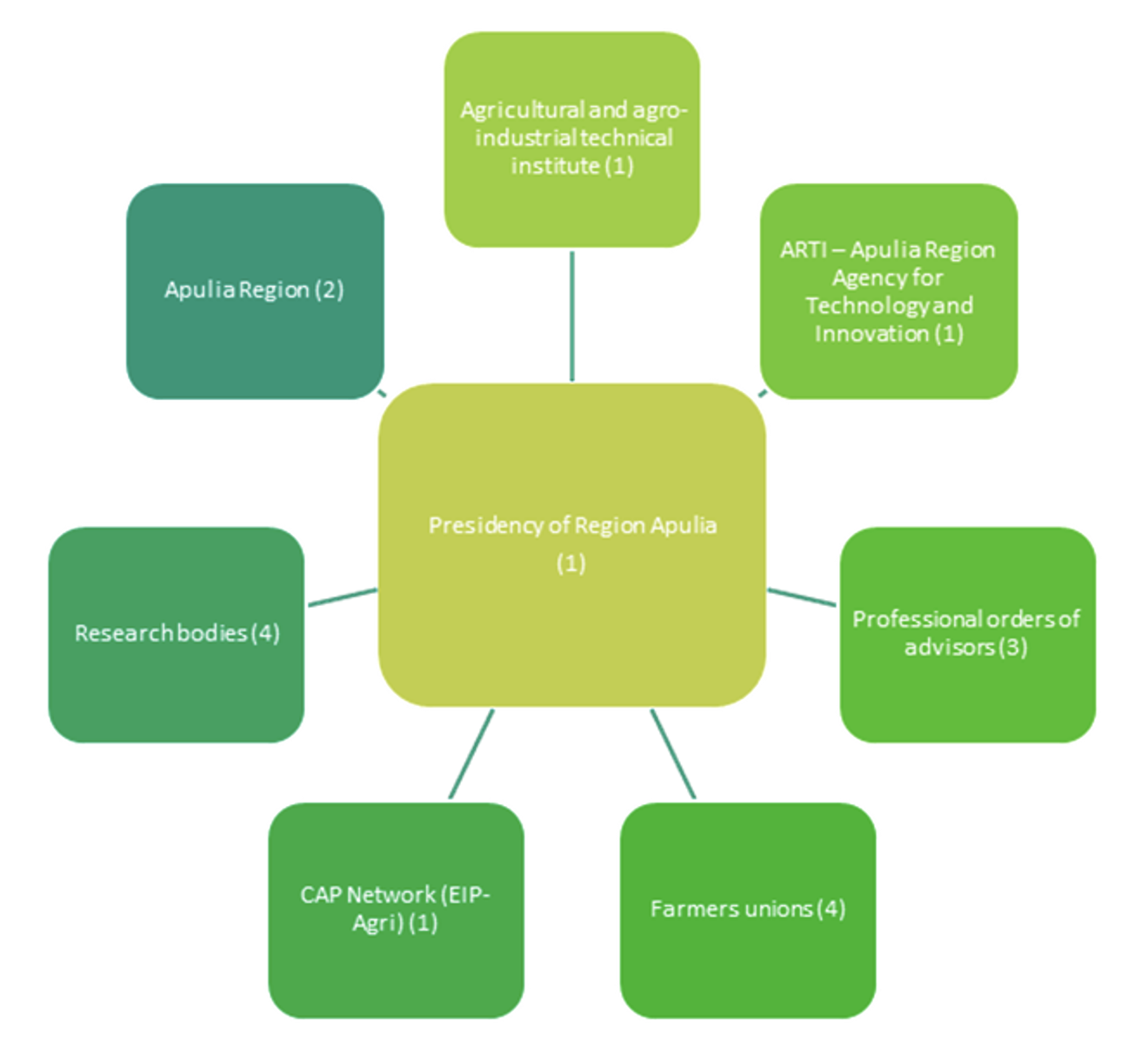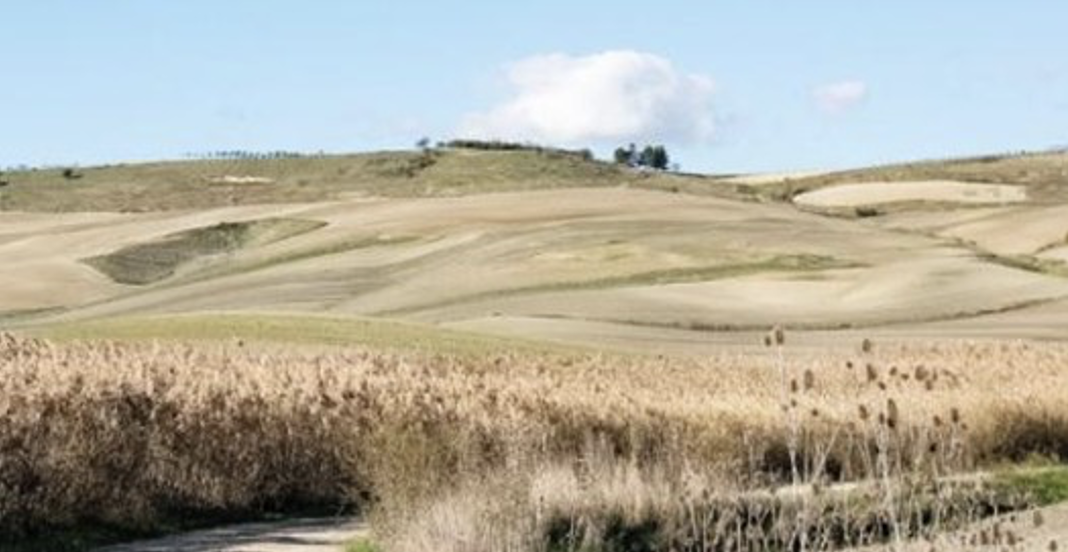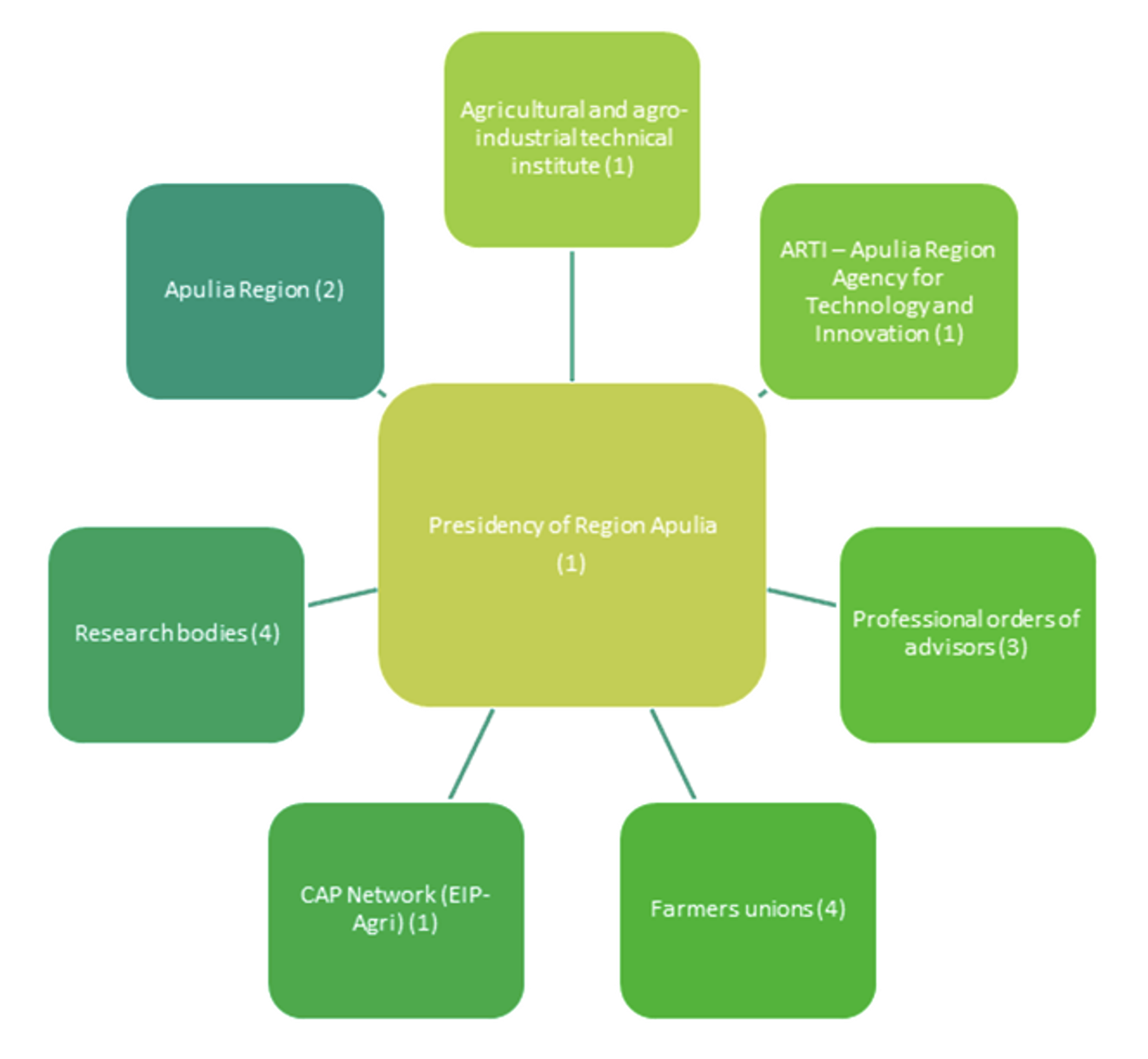2024
AKIS coordination bodies
governance

In Apulia region's Agricultural Knowledge and Innovation System (AKIS), despite having strong research and training organizations, suffers from fragmentation, weak coordination, and low farm association. Many farms operate with outdated structures, and current measures lack a cohesive framework, leading to isolated projects without integration into a broader innovation network. These issues, along with poor integration of production chains, require targeted political action to address the economic crisis's impact on food consumption, prevent depopulation, and enhance collaboration among agricultural actors.

Source: www.regione.puglia.it
This is the third-largest region in Italy in terms of agricultural technical institutes, hosting 14 institutions, which account for 9% of the national total.
In recent years, more graduates from agricultural institutes have continued their studies in agriculture at universities and these latter very often incorporate courses focused on the primary sector and sustainability. So, in general, the educational offerings have expanded to include new disciplines related to agriculture and agri-food. Advisory services are provided by various regional agencies, including the Regional Agency for Irrigation and Forestry Activities (A.R.I.F.), the main public agency supporting agriculture and forest resource protection. Other key actors include professional organizations, producer associations, and freelance professionals. Despite the region's strong academic presence, weaknesses in the agri-food system include limited digital knowledge, low digital tool adoption, and poor network coverage.
The political relevance given to the AKIS strategies in the context of the Strategic Plans (SP) 2023-2027 of the CAP has certainly highlighted the opportunity to define governance bodies aimed at coordinating AKIS-related interventions and actors in order to better implement them and contribute to achieving the cross-cutting and specific objectives of the CAP SPs.
In particular, the AKIS coordination body is identified by the 2023-2027 SP as the contact point for the European Commission and the European CAP Network.
The lack of a clear and common definition of the role and functions of the AKIS coordination bodies by the EU regulation has certainly encouraged the managing authorities of the CAP SPs to identify the set-ups that best suit their governance needs and the expectations of the respective actors.
In Italy, as a result of the new delivery model, and differently from previous programming periods, the CAP SP 2023-2027 is established at the national level only. However, since the Regions/Autonomous Provinces have, by Constitution, the competence in agricultural matters, they have set up Complementary Rural Development Programmes (RDCP), which, within the framework of the National CAP SP, have their own governance and implement interventions that are relevant to their specific territories.
The general model of AKIS coordination bodies for Italy is indicated by the CAP SP that mentions a mix of "institutions that have the responsibility/capacity to provide training, advisory services, research, information". Lately, in mid-2024, the Ministry of Agriculture established a national AKIS coordination model which calls for a collective body, composed by representatives of the variety of key AKIS actors.
Under this national framework, the Apulia Region has established a Regional AKIS Coordination Body for the RDCP for Apulia 2023-2027.
The AKIS Regional Coordination Body for the Apulia CSR 2023/27 was established by a decree of the regional government (Giunta regionale) according to Regulation (EU) No. 2021/2115 and consistently with the national model set by the referring Italian ministerial decree (see AKIS-in-Practice! 1.13).
1. Who is the AKIS CB
The AKIS Coordination Body of the Apulia Region, is a collegial body include those actors who are involved in various ways in the process of creating, managing and disseminating knowledge and innovation in agriculture. These are universities, research centres, professional organisations, technological institutes and other players in the advisory and training provision. It is chaired by a representative of the Apulia Region. The body consists of 20 members who are key actors of the territorial agricultural systems and experts in the domains of AKIS and digitization (Fig. 1).
2. Composition of the AKIS CB
Figure 1: Composition of the Regional AKIS Coordination Body of Apulia Region

Source: Authors' elaborations based on Regione Apulia (2024)
3. Functions attributed to the AKIS CB
The Regional AKIS Coordination Body has the task of coordinating the design and implementation of policies for knowledge and innovation for the agrifood and forestry sector in the Apulia region, and in particular:
4. Procedures for interplaying with other AKIS actors and with the MA of the CAP SP
For the purposes indicated in art. 8 of the CAP SP 2023-2027, the regional AKIS coordination body will interface with the Managing Authority of the EAFRD, ERDF, ESF, FSC, with the national coordination, with the National CAP Network, with the Interregional Network of Agricultural Research Forestry Aquaculture and Fisheries.
The set-up of an AKIS coordination body like this requires:
Wide representativeness of local key AKS actors.